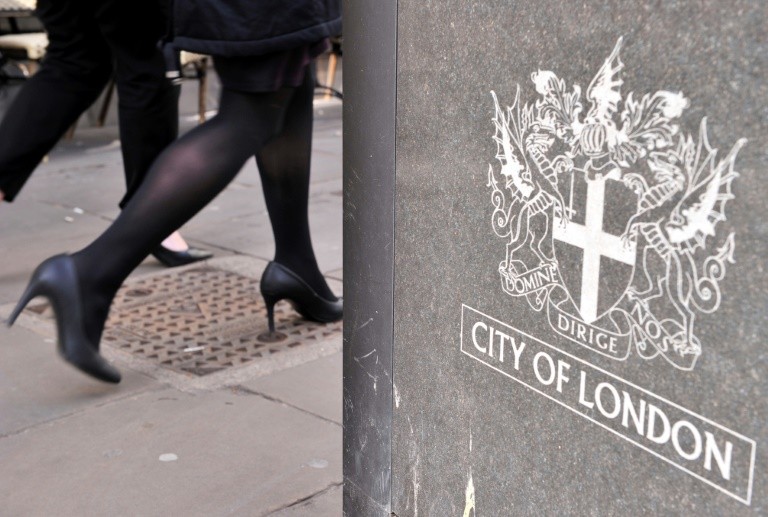London’s powerful “City” financial sector, facing reduced access to mainland European markets following Brexit, is banking on its global appeal to forge new ties and remain an international force.
With Britain exiting the EU on Friday, the City will eventually lose “passporting” rights that has allowed the driver of Britain’s dominant services sector to operate freely across the bloc.
The long-standing bilateral arrangement, which has convinced especially large US and Japanese lenders to set up massive operations in London, formally ends with the conclusion of a Brexit transition period due December 31.
Britain must now move onto so-called “equivalence”, whereby financial firms agree to meet EU rules to maintain access to its market.
But the new set of rules are not without risk for City companies working out of London skyscrapers nestled among medieval buildings.
“Equivalence is not ideal for the City… because it can be revoked very easily and it has in the past been very politicised,” noted Kay Daniel Neufeld, head of macroeconomics at the Centre for Economics and Business Research.
“There will have to be trade-offs” between London and Brussels, Neufeld added, as he referenced recent rows between non-EU member Switzerland and the bloc over third-party equivalence agreements concerning Swiss financial services.
– ‘Step in the right direction’ –
UK finance minister Sajid Javid’s recently insisted that Britain’s future trade in financial services with the EU should be on the basis of “outcome-based” equivalence of rules.
 AFP/File / Tolga AKMENA new set of “equivalency” rules after Brexit are not without risk for City companies working out of London skyscrapers nestled among medieval buildings
AFP/File / Tolga AKMENA new set of “equivalency” rules after Brexit are not without risk for City companies working out of London skyscrapers nestled among medieval buildingsIn other words, Britain should have its own rules producing the same outcomes as current EU arrangements existing between the bloc and non-member countries.
While British industry, notably the food and car sectors, voiced concern about Javid’s insistence that there would be “no alignment” with the European Union after Brexit, his comments were welcomed by the City of London Corporation, or local government authority for the capital’s financial district.
Its policy chair Catherine McGuinness said the current third-party equivalence system the EU offers to countries such as Japan is “patchy and prone to politicisation”.
“Securing an ‘outcome-based’ equivalence of rules… would be a step in the right direction,” she added.
McGuinness was this week visiting India “to highlight the fundamental strengths of London and the UK’s financial sector”, the City of London Corporation said.
Large financial institutions, including British bank HSBC and US giants JPMorgan and Morgan Stanley, have decided to move some London staff to the continent because of Brexit — but the number of workers has been small.
 AFP/File / Daniel LEAL-OLIVASAround 2.3 million people are employed within Britain’s financial sector, providing more than 10 percent of the country’s tax revenues at £75 billion
AFP/File / Daniel LEAL-OLIVASAround 2.3 million people are employed within Britain’s financial sector, providing more than 10 percent of the country’s tax revenues at £75 billionAround 2.3 million people are employed within Britain’s financial sector, providing more than 10 percent of the country’s tax revenues at £75 billion ($98 billion, 89 billion euros).
While the capital is home to global banks and major markets and exchanges, cities outside of London are notable for employing thousands of workers in financial support services.
London meanwhile is also at the forefront of raising funds for technology start-ups.
“Can the City survive Brexit?” The Economist magazine questioned last year.
“For a country that is losing friends fast, having a global, sophisticated industry is a blessing, not a curse,” it concluded.
AFP

